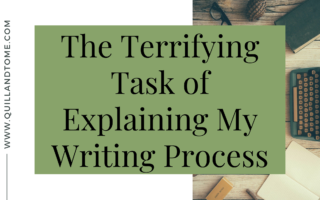What is this thing called editing? Why do you need an editor when you already use the spell check feature in your word processor?
If you are reading this, you are writing a book, planning on writing a book, or you just finished writing a book. Congratulations! You have taken on this journey that many people dream of and most never even start. The publishing process can be daunting, with all the different steps and knowing which people need to be a part of your launch team.
One of the most expensive aspects of publishing is the editing process. However, this is not something you should skimp on. Editor’s prices vary, but it is not uncommon for an editor to take 40 hours or more to edit a manuscript, easily putting the price tag in the thousands.
Check out the industry standard pricing for writing and editing here.
Trust me, you need an editor, even if that means you need to wait a little longer to save the money. Editing software and the spell check feature just aren’t enough. They only catch an error if a word is spelled incorrectly. What they don’t catch is if you are using the wrong word, or if passive voice is running rampant through your work, or if you have big plot inconsistencies.
Everyone needs an editor, from the newbie writer publishing their first book to Stephen King. There are eight different kinds of editors that all focus on specific things. The Independent Book Publishers Association (IBPA) sets recommendations for editors in their industry standards checklist. According to the checklist, you should have at least a copyeditor, a developmental editor, and a proofreader. Do your research, and make sure you mesh with the editor(s) you pick, as you will be working closely with them for a while. Knowing which kind of editor you need will save you a lot of time and headache.
1. Beta Readers
Many people will argue that beta readers are not editors. In a way, sure, they are correct. They are not usually formally trained in editing. However, they are almost always avid readers. This gives them a unique perspective when reading your work since they will read it as a reader, not as a writer.
This means that they will focus on the story as a whole. They will usually help you find major plot holes and inconsistencies, and tell you whether they liked it or not. Sometimes, depending on the beta reader you get, they may even point out grammar, punctuation, and spelling mistakes.
Beta readers are normally the first people who see your manuscript after you rewrite it, but before you send it to the “Editors”. Some beta readers will read your manuscript and provide feedback for free, while others will charge a small fee of about $0.001/word, or $1 per 1,000 words.
You can check out this post on beta readers, more on what they do, and why you need one here.
2. Critique Groups/Partners
Critique groups or partners are similar to beta readers in that they usually read your manuscript before you send it to the “Editors”. They are different than beta readers in that they are usually other writers. Having other writers critique your manuscript will help you catch the technical flaws in your writing, such as grammar, point of view, and verb tense.
When you send your manuscript to your critique partners, take their feedback with a grain of salt. Don’t get offended if they point out a lot of things that could be improved. They usually just want to see another writer succeed and try to give you the most detailed feedback they can.
Like beta readers, there are some writers who will critique your manuscript for free. Then, there are others who will charge a small fee of about $0.001-0.008 per word.
3. Copy Editors
Copyeditors will correct the grammar, spelling, punctuation, and formatting of your manuscript. They will also occasionally fact-check to ensure the accuracy of the details. Copy editors are the first type of editor that the IBPA recommends that all self-published authors hire to edit their book.
Most publishing houses have a copy editor on staff, but if you are self-publishing, you can expect to pay about $30 to $40 an hour for a copy editor. Obviously, pacing will vary from editor to editor, but many will average about 3 to 7 pages of 250 words per hour.
4. Content Editors
Content editors are similar to Developmental editors in that they both focus on the content of the story, not just the grammar and punctuation. They look at the plot, character development, setting, and voice, and are usually employed by small and medium-sized publishing houses. This type of editor is important because they will catch any remaining issues or inconsistencies with your plot or story structure before publication.
If you are self-publishing your book, a content editor will often charge around $40 to $50 an hour, going through about 2 to 5 pages of 250 words per hour.
5. Line Editors
Line editors are also known as copy/content editors. They are often hired by self-publishers or small publishing houses because they do it all. Their job is to go through your manuscript line by line searching for grammar, spelling, punctuation, like a copy editor or proofreader. They will also read your manuscript for plot, character, setting, and fact-checking like a content editor.
Line editors are most commonly used in self-publishing and small publishing houses, and often charge about $40 to $60 per hour, going through 1 to 6 pages of 250 words per hour.
6. Developmental Editors
A developmental editor is like a content editor in a different setting. Most are employed through big publishing houses or professional freelancers. They will search your manuscript for any inconsistencies or issues with the plot, pacing, and/or characters. Like their name represents, developmental editors will help you focus on the development of your story. They are the second editor that the IBPA highly recommends for any professionally published book.
Hiring a developmental editor for your book will usually cost anywhere from $45 to $55 an hour, at 1 to 5 pages of 250 words per hour.
CHECK OUT THE WRITER’S PLANNER BY QUILL AND TOME!
Get the planner and organize your life and your writing!
What you can find inside:
- Plenty of writing space in a vertical layout
- Undated weekly and monthly pages you can start using any day of the year
- Reading and Writing Trackers
- Writing Tips
- and so much more!
7. ARC Readers
Similar to beta readers, ARC (or Advance Reader Copy) readers read your book before it is released to the public. They are the last step before it goes to the proofreader and your book is published. ARC readers receive a copy of the book that prominently says something to the effect of “Advanced Reader Copy” on the front and back cover. They will then read it, give you any last-minute feedback and leave a review, usually on Amazon or Goodreads, once the book is published. These reviews will help your book sell, so it is in your best interest to find a few ARC readers to add to your launch team.
Many ARC readers do not charge for their services but do expect to get a copy of your book for free. However, some do charge, usually a fee comparable to that of a beta reader, about $0.001 to 0.008 per word.
8. Proofreaders
Proofreaders are the final type of editor to review your book before publication. They go over your manuscript for any final errors, such as punctuation, grammar, and formatting. Many proofreaders also work in other genres, such as court reporting, but are also hired by most publishing houses and self-publishers. They are the last of the three minimum editors that the IBPA recommends to professionally publish your book.
Proofreaders commonly charge anywhere from $30 to $35 an hour, going through 9 to 13 pages of 250 words per hour. Remember that at this point, your manuscript has already been looked over by some combination of a copy and a content editor. So, while the proofreader can go through the manuscript faster, they are imperative to checking any hard-to-find or last-minute errors.
Final Thoughts
Any way you look at it, editing is going to be the most expensive part of the publication process. However, it is far from the part you should skip! Ideally, you should at the very least, have some sort of combination of a copy editor, a developmental editor, and a proofreader. Beta, critique, and ARC readers can also provide some very valuable feedback. Take care in deciding who you will bring onto your launch team. Every person will have a valuable role to fill, and if done correctly, can help you create the best and most successful book possible.
Over To You
Hopefully, you found this helpful.
If you have any questions, comments, or anything to add on the subject of editors, please feel free to leave it below in the comments.
If you enjoyed this content and are interested in fitting writing into your daily life, DOWNLOAD THE FREE WORKBOOK! Read our monthly newsletter, full of valuable writing advice and be the first to know when we release a new product or book.







